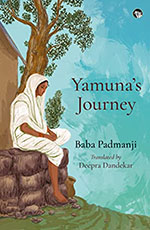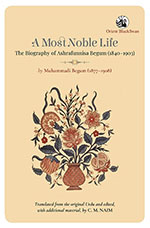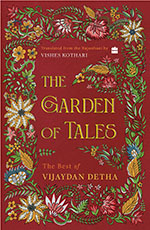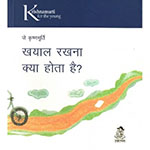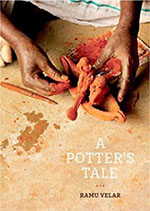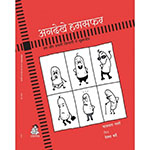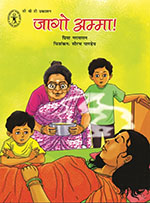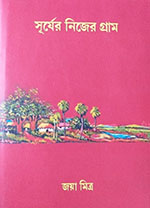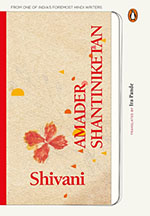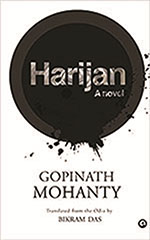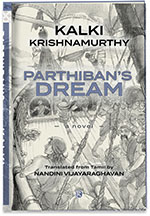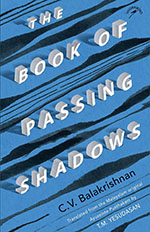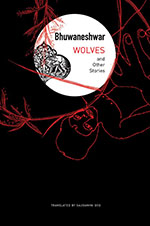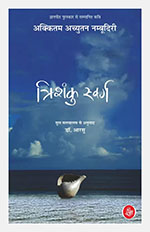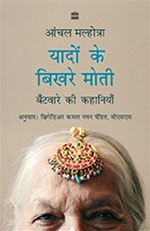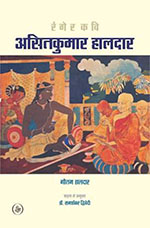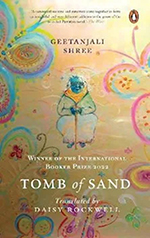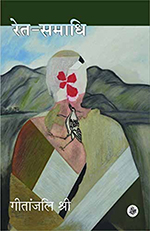Translations
Yamunaparyatan, deemed to be the first Marathi novel, was published in 1857. It was written by Baba Padmanji Mulay, a formidable activist-intellectual and public persona of his times (1831-1906). It has now been translated into English as Yamuna’s Journey by Deepra Dandekar, a keen chronicler-critic of Padmanji’s times and texts.
Women’s role and contribution to Urdu literature and journalism in the eighteenth and nineteenth century remains a relatively under-examined area. CM Naim’s A Most Noble Life: The Biography of Ashrafunnisa Begum (1840-1903), makes an important intervention as it tells the tale of an extraordinary woman who was deeply devoted to the cause of women’s education, and enriches the reader with a wealth of material that highlights the social, cultural, and literary context that shaped the contours of ordinary Muslim women’s lives in the nineteenth century.
The translator Vishes Kothari’s note that prefaces Vijaydan Detha’s collection of folk tales reminds us that what we are going to read is an act of literary and cultural translation as well as a feat of literary magic where the intangible is made visible and accessible to the readers who do not have access to the original Rajasthani stories and perhaps even the milieu in which these stories are set and from which they emerged.
This happened a few days ago. A new-born calf strayed into our lane. Tender, delicate. Such beautiful bright eyes. Tottering in the lane she mooed so loud that quite a few people came out of their houses. The calf continued to call, looking this way and that. Gradually more and more people gathered. They surrounded her. Someone opened their garden gate. People took her inside with care.
2021
Tara Books is doing something fantastic. In its Makers series, it is bringing us the voices of craftspeople and folk artists, traditionally anonymous and unheard. I raved about their previous book on the Gond painters of Patangarh and their work, and now here is a new one, A Potter’s Tale, on Ramu Velar, a master potter from Tamil Nadu.
Writing a non-fiction comic book for children on a rapidly developing area in science with many unknowns, is a major challenge. Charudatta Navare and Reshma Barve have done a remarkably good job of it. Andekhe Humsafar is a Hindi translation of the original A Germ of an Idea. While the author has used his biology background as a great strength, Barve’s contribution as an artist is equally important to convey the complex scientific concepts with the help of illustrations.
2021
The crux of the story is that the sun is up in the sky and why is Amma still sleeping?From one stand-point, this is a very small, simple story that tries to capture a very small slice of time-frame and space. But if you read it again after a while, some hazy images start emerging in your mind.
This is a ‘novel for adolescents’, a thing that is hard to define. But the necessary condition for an adult writing a ‘novel for the adolescents’ is that the writer must return to her own adolescence, because years of growing up alter the life of the writer significantly as compared to the life projected in the story. Yet, the writer retains a flow of perspective on the world and life, and on the philosophical outlook.
2022
Among the cultural elite of Gujarat, it was a common practice to hire Bangla tutors, visit Shantiniketan and read or translate Bangla into Gujarati. I was told this by Niranjan Bhagat who wrote his first poem the day Tagore died. From the late nineteenth century to this day, generations of Gujarati writers have translated Bangla literature, and a galaxy of individuals have been shaped from their time at Shantiniketan.
2021
The troubling question in writing about Harijan, both the original Odia novel by the renowned Gopinath Mohanty as well as its meticulous and detailed English translation of the same name, is this: how does one write about an event in which the experiencing person is the one who has contributed directly to the degradation of a fellow human being?
A prolific writer, a respected journalist, connoisseur of arts, and a revolutionary, R Krishnamurthy, better known as Kalki, was a literary giant, whose body of work includes Alai Osai, and his famous trilogy, Parthiban Kanavu, Ponniyin Selvan and Sivakamiyin Sabatham. Kalki’s novels, written between 1941-54, belonged to a historical genre, a mix of drama, action, intrigue and passion
Serialized in the Malayalam weekly Mathrubhumi in 1983, and published as a novel a year later, CV Balakrishnan’s Ayussinte Pusthakam has become over the years a widely read work that is regularly prescribed in university curricula. The novel’s initial success was restricted to a more youthful audience, but today it has been published in 26 editions, a testimony to the acclaim and admiration which this work continues to elicit.
Saudamini Deo’s English translation of short stories by Bhuwaneshwar Prasad marks a significant event in Hindi literature. Not only does it reinvigorate a chronically under-appreciated Hindi writer in a new language, but it also attempts to rewrite the story of Hindi modernism as seen through the lens of non-canonical texts.
The sudden rise in the number of Self-Help books, Ted talks, motivational write ups is a sign of human malaise that needs sorting out. A distinct connect between consumerism, capitalism and crisis of communication has shown a demand for value-oriented knowledge systems that teach you to be good and do good unto others. Devdutt Pattanaik is one such motivational writer and speaker whose books sell, and ideas instill wisdom.
Akkitham Achuthan Namboothiri’s poems emanate from a peculiar and intense turmoil of the soul. Their existence is a manifestation of the expansive human consciousness traversing the realms of ideation and affect. f=”kadq LoxZ, the Hindi translation of Namboothiri’s select Malayalam poems by Dr. Arasu, brings together fifty-one poetic compositions, each of which is a journey, a myth, a fragment, a thought, a reminder of the untranslatable, and an epitome of the inevitable dilemmas
Material object has gained currency as a subject of renewed attention in the second half of the twentieth century in academic fields like anthropology, history, cultural studies, sociology, archaeology and art history among others. The title under review can be seen as part of this new trend in scholarship that seeks to tease out the complex and dynamic roles object/thing plays in the personal, socio-economic, cultural, political, and civilizational life of humans.
Hindi readers have long been unaware of the cultural and literary genius of other Indian languages. The same perhaps could be said with equal authority about other Indian language readers. The only process that can make it possible is translation. However, translation in India has largely been limited to a one-way traffic, from various Indian languages to English. Translation between and among Indian languages has been patchy and irregular.
This book provides a glimpse into the persona of the Indian Armed Forces. Rachna Bisht, the wife of an army officer, has put together seventeen stories which discuss an unusual episodic journey of several characters, as the title suggests. It depicts bonds that are less frequently spoken about, such as grief at the untimely death of a subordinate, the cross-border friendship that began in Siachen or a dog’s rescue mission during a deadly snowstorm, etc.
Reading Ret Samadhi and Tomb of Sand is exhilarating, challenging, even exasperating; such is its span and scope, its playful exuberance and idiosyncratic originality of style, playing out differently in the two versions. Given its more recent American/English avatar, one may evoke Whitman: it is vast, it contains multitudes. Given its incontrovertible rootedness in its Indian-subcontinental milieu, however, one must invoke the Mahabharata, the grand epic that it references at the very outset.
2018
As a fellow writer, the fifth novel of Geetanjali Shree leaves you wonderstruck with its sweeping imagination and the sheer power of language, unprecedented and uninhibited. She is known for her experiments with content and form, but this novel keeps you in grips with its storyline as well, which had not really been her forte earlier.

